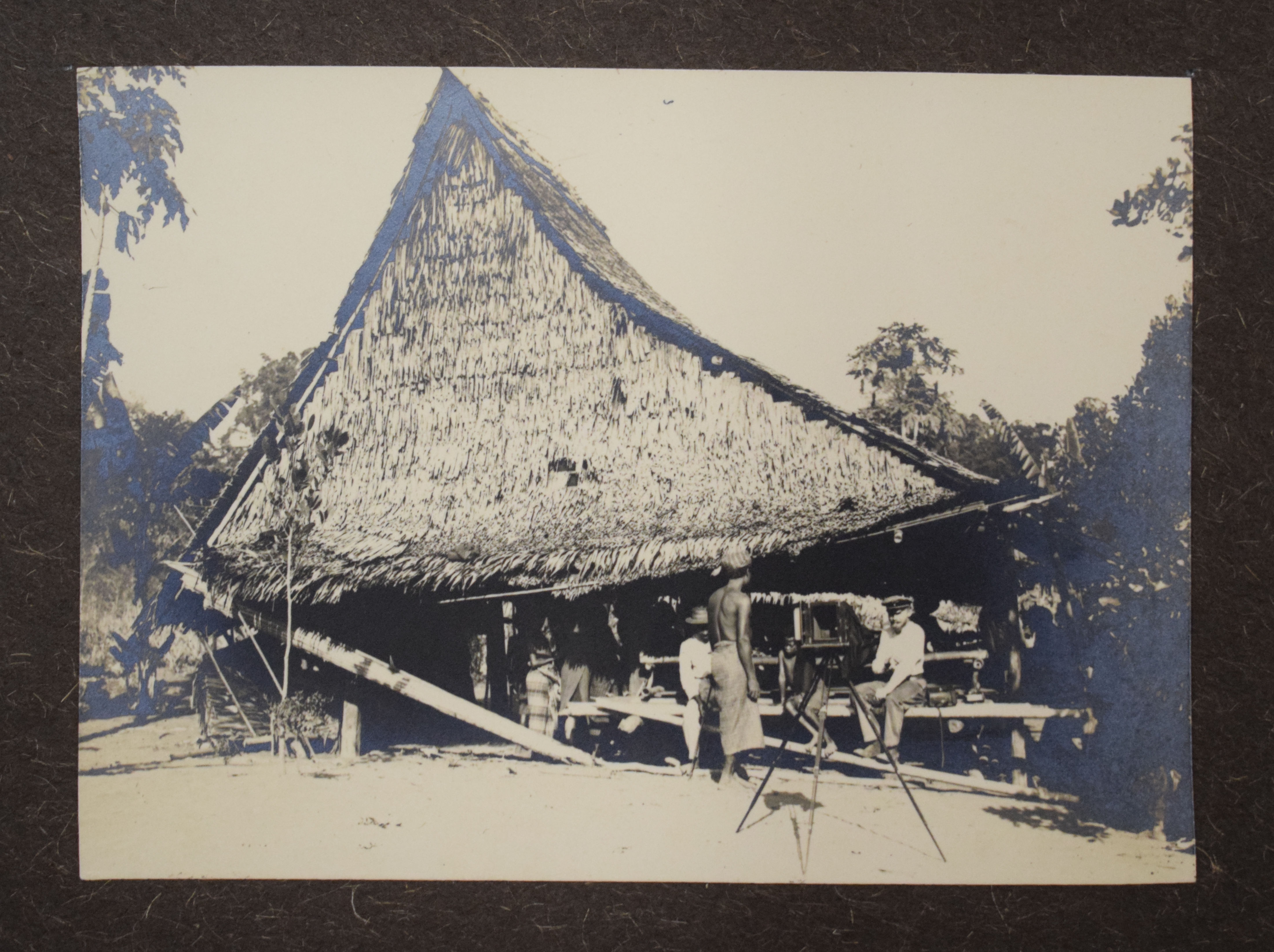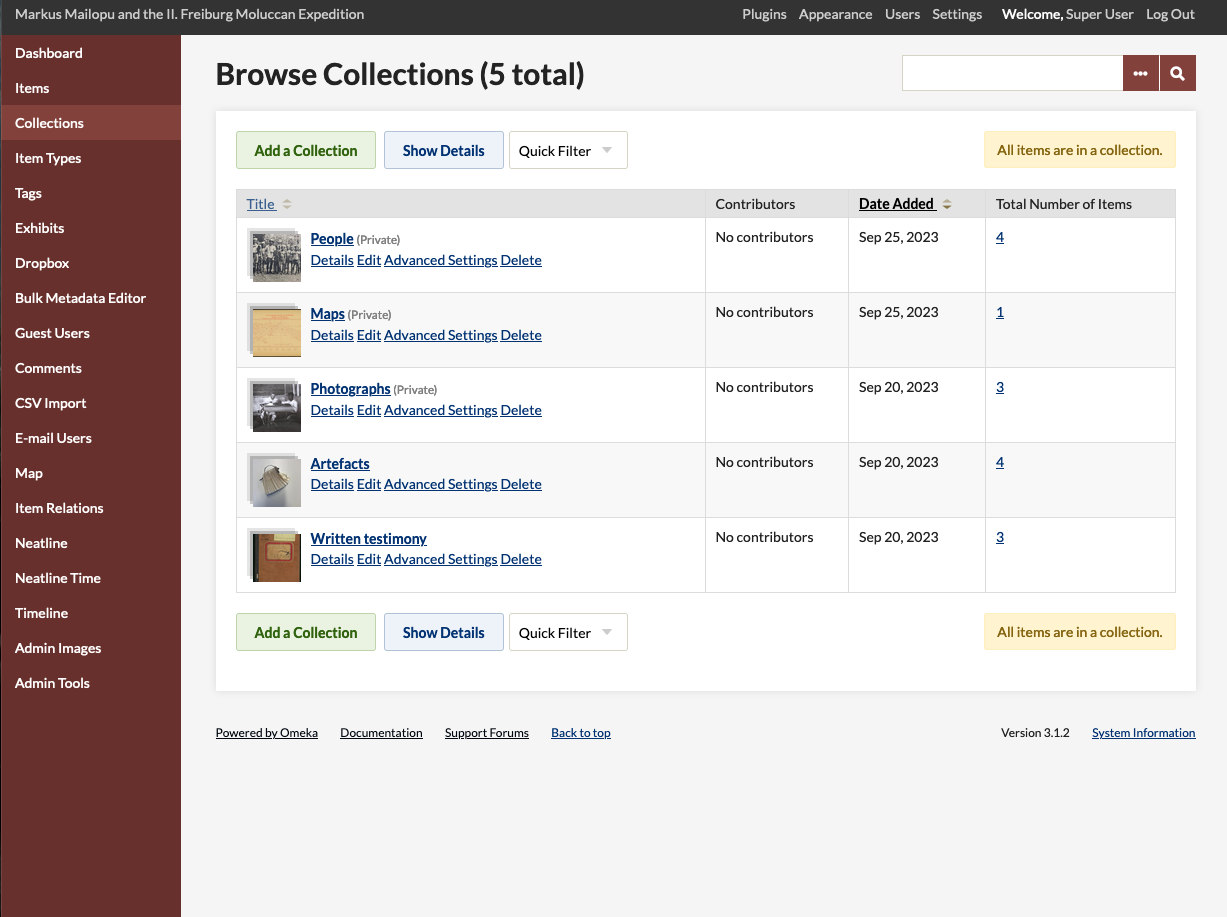Luisa Marten
Markus Mailopu and the "II. Freiburg Moluccan Expedition"
This PhD project studies the archival collections of the "II. Freiburg Moluccan Expedition" (1910 - 1912) and enacts their reactivation through digital curation. During the expedition, the scientists Karl Deninger (geologist and expedition leader, 1878 - 1917), Odo Deodatus Tauern (anthropologist and filmmaker, 1885 - 1926) and Erwin Stresemann (natural scientist and zoologist, 1889 - 1972) visited the islands of Seram, Buru and Misool in present-day Indonesia. There, they met Markus Mailopu (? - 1917 [?]), a local from Seram, who supported their scientific work and accompanied them to Germany. Diary entries, personal communication, photographs, manuscripts, and artefacts point to Mailopu's participation in scientific research and his personal relationships with the German expedition members. The archival collections of the expedition have been distributed – by the participants and their descendants – to various institutions along disciplinary trajectories, including the Ethnologisches Museum and the Museum für Naturkunde in Berlin, the Staatsbibliothek zu Berlin, the GRASSI Museum für Völkerkunde zu Leipzig, the Museum für Völkerkunde Dresden, the Rautenstrauch-Joest-Museum in Cologne, the Weltkulturen Museum in Frankfurt am Main, the Museum Natur und Mensch in Freiburg im Breisgau, and the Universitätsarchiv of LMU Munich.
In this PhD project, the dispersed archival material is reassembled in digital form by using OMEKA, an open-source platform. The "Mailopu Archive" facilitates open access to the material and its collaborative curation, enabling researchers from Indonesia, its former colonizing state, the Netherlands, and Germany to re-historicize, re-mobilize and re-articulate its contents. These new interlocutions are geared towards a dual analytical focus on the expedition’s wider political and institutional entanglements as well as the associated personal relations and engagements. In studying and enacting such curatorial process, this PhD thesis explores the potential of digital interventions for the reactivation of historical archival collections through multivocal re-historicization of the past and the pluralization of interpretative authority today.
For more information on the research project, visit the "Mailopu Archive" or return to the project page.
 This image was taken during the expedition, most probably by Erwin Stresemann. It shows several people in front of a wooden house, including Karl Deninger on the right, and a camera set up in front of them. This image is part of the collection at the Ethnologisches Museum, Berlin. Photo: L. Marten.
This image was taken during the expedition, most probably by Erwin Stresemann. It shows several people in front of a wooden house, including Karl Deninger on the right, and a camera set up in front of them. This image is part of the collection at the Ethnologisches Museum, Berlin. Photo: L. Marten.
 This screenshot shows the object-based digital archive that has been created with the open-source platform OMEKA. The user surface enables the collaborative curation of the archive’s structure and content; the visitor surface allows to view the collections and interact with the content. Photo: L. Marten.
This screenshot shows the object-based digital archive that has been created with the open-source platform OMEKA. The user surface enables the collaborative curation of the archive’s structure and content; the visitor surface allows to view the collections and interact with the content. Photo: L. Marten.

